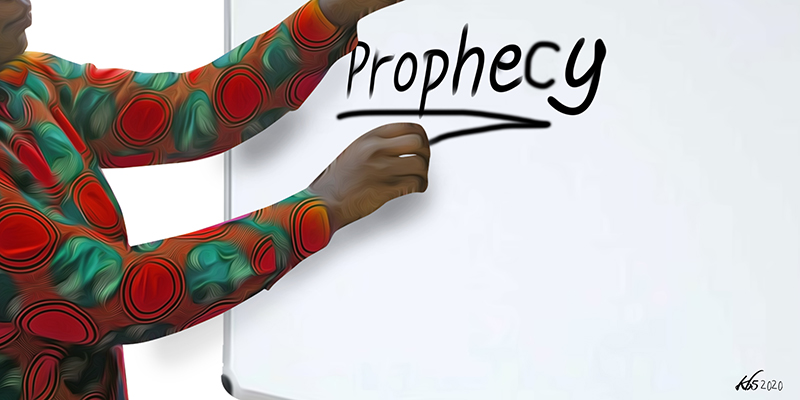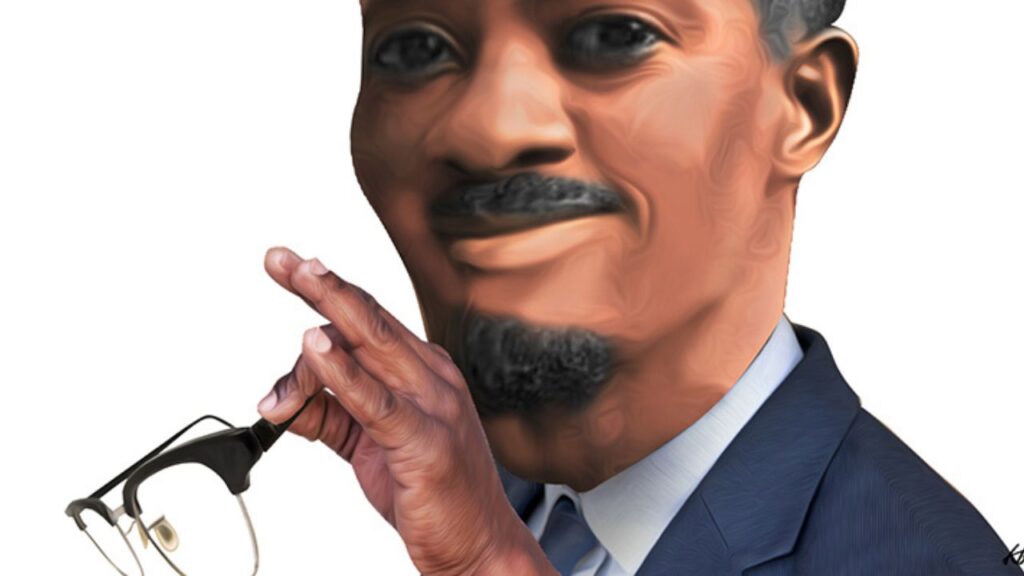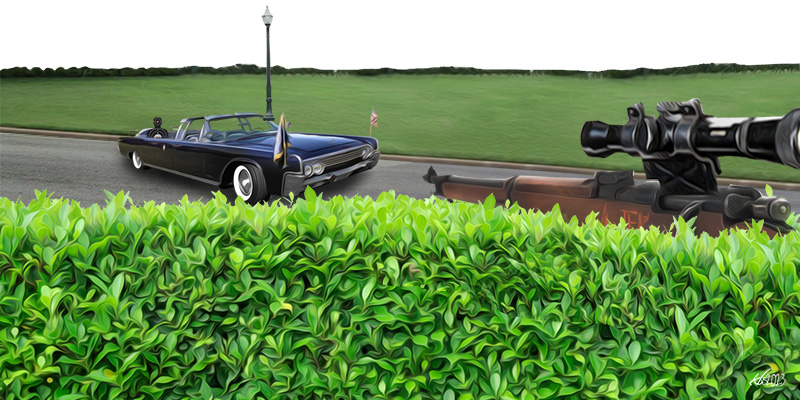“Scholars are inheritors of Prophethood”
Prophet Muhammad PBUH
To fully contextualise and grasp the gravity of this saying of the Prophet Muhammad PBUH requires knowledge of not just the role of prophethood in society but also of the nature of society. At both the level of Max Weber’s Gemeinschaft and Gesellschaft, society consists of large groups underpinned by a set of beliefs that organise the membership’s affairs. This is irrespective of the fact that one is organic and the other legal-rational.
This underpinning corpus of beliefs that serves as the groups’ existential truth, criterion of measure and all-encompassing narrative of and about existence, is the lens through which the internal and external universe at both individual and group level is perceived and therefore ordered. It is this story that is articulated by prophets and oracles of yore, and the scholars and intellectuals of the present day.
It is by this measure that the scholars are inheritors of prophethood. From this saying, by analysis of the function of prophets, we can extract the role of scholars in society.
All through history prophets have oscillated between one extreme end, the highest level of political leadership — what Plato called “the Philosopher King”, the ruler of his utopian city Kallipolis who possesses wisdom and simplicity — and the other extreme end, the highest level of political activism — what the 19th century termed as Radical Activism, individuals who called for total societal change, engineering complete upheaval of the status quo.
Both the Philosopher King and the Radical are enabled by one thing — Knowledge.
What knowledge?
Knowledge of truth.
What truth? Which truth?
Empirical? The truth about the inner workings of nature? No.
The truth about the existential, teleological and relational nature of man. In short, a coherent set of beliefs that tell us where we came from and where we are going, why we are here and how we should relate to one another.
The most cogent and convincing story told, that comprehensively answers this question, will calibrate all social interaction, order and direct us all.
It is for this reason that British colonialism of the African continent began with a story. A Story about the salvation of souls, a promise of a beautiful place of endless bliss and, over and above that, complete absolution. Successful “Christianisation” was a sine qua non for absolute subjugation and slavery of the natives. The advance guard of imperialism was the Church Missionary Society.
In fact, the need for this “story” and its power over peoples was common imperialist knowledge. Penelope Carson’s book The East India Company and Religion 1698-1858, records an incident in which 17th century churchman and orientalist Humphrey Prideaux, who was later to become Dean of Norwich, castigated The East India Company for neglecting the propagation of Christianity in India, pointing to the success of the Dutch East India Company, arguing that their Dutch counterparts thrived due to proselytisation of Christianity where they expanded.
Where native elites intervened to bar the entry of missionaries in places such as Japan, the peoples of these lands remained free of European colonisation for centuries.
The answer to the question of existence, manifested in the instinctive questions we all ask — Where did we came from? Where we are going? Why are we here? How we should relate to one another? — has all-encompassing power over a community and society, and herein lies the power of the scholar.
Knowledge has only one purpose: to elevate the human condition, to drive away barbarism and raise us to civilisation. For knowledge is the only attribute that differentiates us from the rest of creation.
Why not make the case for free will here too? For free will is a factor of knowledge. Free will and self-awareness are implied and are necessary predicators for knowledge.
There was never any need for a tree of knowledge in the heavens where angels reside, as angels have no free will. Neither was there any need for one in the realm of beasts, for beasts have no intellect. Only man has the unique ability to value knowledge, for only he has both intellect and free will.
Given that the purpose of knowledge is to lead us to our Xanadu, it follows that those amongst us with the wherewithal for knowledge have a teleological duty to the knowledge and an essential duty to their kind to take the mantle of intellectual leadership together with all the risks and rewards it portends.
This knowledge of purpose enables the scholar to direct the society from its empirical state towards its normative ideal. This direction is not frictionless. It ensures a never-ending struggle between the interests anchored in the status quo and those rising from the promise of change. American scholar and activist Noam Chomsky captures this function well in this quote from his essay The Responsibility of Intellectuals: “With respect to the responsibility of intellectuals, there are still other, equally disturbing questions. Intellectuals are in a position to expose the lies of governments, to analyse actions according to their causes and motives and often hidden intentions.”
Failure to rise to this duty can be legitimately termed betrayal of calling, betrayal of self.
In the past, where humanity was organised at village and tribal level, it would have been sufficient to speak to individual scholarly duty, but in today’s complex social order, we must communicate the same argument to the organisations in our society that consist of knowledge workers and whose purpose is knowledge or a derivative of knowledge.
This would consist of universities and religious organisations and their affiliate unions and associates. To this end we will cite the most well-known or stereotypical examples of individuals and organisations that have endeavoured to live up to the demands of this vital function, or calling.
The unity of individual scholarship and activism is perfectly epitomised by the world-renowned Scholar Noam Chomsky mentioned earlier, as this summarised excerpt from Who is Noam Chomsky?” perfectly illustrates:
Chomsky joined protests against U.S. involvement in the Vietnam War in 1962, speaking on the subject at small gatherings in churches and homes.
He also became involved in left-wing activism. Chomsky refused to pay half his taxes, publicly supported students who refused the draft, and was arrested while participating in an anti-war teach-in outside the Pentagon. During this time, Chomsky co-founded the anti-war collective RESIST with Mitchell Goodman, Denise Levertov, William Sloane Coffin, and Dwight Macdonald. Although he questioned the objectives of the 1968 student protests, Chomsky gave many lectures to student activist groups and, with his colleague Louis Kampf, ran undergraduate courses on politics at MIT independently of the conservative-dominated political science department.
Because of his anti-war activism, Chomsky was arrested on multiple occasions and included on President Richard Nixon’s master list of political opponents. Chomsky was aware of the potential repercussions of his civil disobedience and his wife began studying for her own doctorate in linguistics to support the family in the event of Chomsky’s imprisonment or joblessness.
Locally Dr David Ndii has struggled immensely and very successfully to live up to Noam Chomsky’s The Responsibility of Intellectuals, explaining the economic reality and the Government of Kenya’s policies/plans to the public in terms understandable by all. He began in the most widely read newspaper Daily Nation and now writes economic analyses and open letters to the rulers on the popular online political journal The Elephant, often successfully compelling the government to respond, albeit with more propaganda and red herring.
His sister-in-arms Dr Wandia Njoya has waged an equivalent struggle in the domain of education and culture. Patrick Gathara and Rasna Warah, whose timely pieces questioned the reasons for the Kenya government incursion into Somalia as part of America’s global imperialist Wars of Terror, triggered a vital conversation at the most appropriate time and place, where the powers that be would have preferred none.
Two critical parts remain for our native scholars and intellectuals (“native” continentally-speaking). First is crystallising their ideas into philosophies that can animate the public and move it to action, “action” being the work of bringing the ideas to life in social order and government policy.
Second is inculcating in a group of their students their philosophy, and organising them to carry it to the public space. The scholar or intellectual is a social actor just as is the politician, only at a different stage of the work of social organising. The scholar or intellectual produces the ideas that the politician or activist organises the public around. If a politician is “Philosophy in Action”, the scholar then is the “Action of Philosophy”. That the group for the politician is termed a political party is moot; the currency for both actors is public opinion and neither scholars nor politicians can be effective without the support of groups. We may term the group around a scholar as followers or disciples for purposes of differentiation.
It is hard to imagine, but Noam Chomsky was once a student. Chomsky began his studies at the University of Pennsylvania. Chomsky states in many interviews that he found little use for his classes until he met Zellig S. Harris, an American scholar touted for discovering structural linguistics (breaking language down into distinct parts or levels). Chomsky was moved by what he felt language could reveal about society. Harris was moved by Chomsky’s great potential and did much to advance the young man’s undergraduate studies, with Chomsky receiving his B.A. and M.A. in non-traditional modes of study.
Noam Chomsky is categorical that, outside of his father, Zellig S. Harris is most responsible for his intellectual direction, political thought and activism.
From scholar-activists to organisation activism
For examples of organisations that have transcended the limited group interests of their membership to actively engage social issues that affect all, we may look to the teacher’s unions in Latin America which are actually social movements that have played critical roles at national and sub-national levels.
The paper Promoting education quality: the role of teachers’ unions in Latin America from the UNESCO Digital Library reports that in Brazil, during the 1988 constitution-writing process, teachers’ unions worked with academic, student and national trade confederations to advocate minimum funding for education. They succeeded in obtaining a constitutional provision establishing that 18 per cent of federal and 25 per cent of state and municipal taxes must go toward education.
Given the crisis we face today is fundamentally a crisis of ideas — or more specifically the lack thereof — to galvanize society, we need our scholars to tell us a new story, or to tell us an old story in a new way.
The Canadian scholar and psychologist, Dr Jordan B. Peterson, serves as an apt example of telling “an old story in a new way”. He reframed the Christian story for an atheistic age, infusing new life into the West’s Cultural Right. After years of losing ground to the liberal social values of the Left, conservatism has found its footing.
Sheikh Taqiuddin An-Nabhani, the Palestinian jurist and founder of political party Hizb ut-Tahrir, reframed Islam as a System for “the Age of Systems”, giving Muslims a way to perceive the complex new global order through the lens of their beliefs. And in so doing, giving Muslims new faith in their way of life and re-energising them to work to find their way forward to re-establishing the Islamic order they had lost.
This spark is what we need. As individuals, and as humanity.
For us in Africa, the 1885 Berlin Conference order is in the terminal stages of decay, just like its Sykes-Picot equivalent in the Middle East. Talk of secession is everywhere in Africa. Even the presumably stable territories like Kenya have not been exempt. Secession, which is the fracture of states, suffers conditions similar to “entropy”, which is the dissipation and dispersion of particles within an entity. Secession creates new problems beyond the potential for an infinite recurrence of further secession. Darfur’s struggle to secede from South Sudan, after South Sudan seceded from Sudan on 9 July 2011, after Sudan seceded from Egypt on 1 January 1956, is a perfect modern example in Africa. Somalia need not be elaborated.
Superficial measures such as renaming countries are no different from adopting some costume as a national dress in search of a new post-colonial identity. They are named in top-down tyrannical initiatives and “un-named” after the death of the baptising despot.
Convergence of nations into new blocks has failed to resolve any of the problems humanity faces, even at the highest level of political awareness, with the blocks beginning to BrExit and GrExit even before they are fully formed.
Democracy is imploding as the multiple centres of thought — democracy’s vaunted raison d’être, “Pluralism” — mature into the centres of gravity of powerful hurricanes of political movements, many currently spinning across America leaving death and destruction in their wake, and threatening to tear America, the paragon of Democracy, into a thousand pieces.
Yet we cannot dial the clock back to our tribal ways as Mungiki the Kikuyu tribal cult that rose in the central highlands of Kenya proved. Our tribal enclaves have been completely shattered by imperialism’s modern-day manifestation — liberalism — never to exist again. There is no tribal safe haven to return to for any of us.
Never in the history of humanity has there been such plenty sitting side-by-side with such great need. Capitalism promised humanity that the free market would solve all its problems. Freedom as a doctrine would lead all of humanity to happiness, plenty and fulfilment. This paradise would follow absolute “freedom of markets”, “freedom of capital”, “freedom of thought and speech”.
But as the Bible famously says, “as it was in the beginning so is it in the end.” Freedom of ownership was first enshrined in the Magna Carta, the 1215 AD agreement between King John of England and his Barons, the land owning aristocracy. Freedom of religion, was promulgated in 1648 from the Treaty of Westphalia, as the right of the Kings and Princes of Europe to choose the religions for their nations and therefore their subjects. The now sacrosanct “Universal Suffrage” born of the French Revolutions of 1789 and 1848 was a “right to vote” for “white men”. Universal Suffrage being for white men had the net effect of establishing a “political universe” in which only white men are the only legitimate citizens.
That summarised the beginning of “our cherished freedoms”.
History shouts loud and clear that freedom, in all its configurations, from the beginning was and is only for the powerful ruling elites, yesterday the Barons and Princes, today the capitalists and selected politicians, or as Marx termed them, the Bourgeoisie. As for the working class, the poor masses, in the words of Marx, freedom for them was, is and continues to be, the freedom to choose “to work” or “to starve”.
Yet the story the “angry genius” Karl Marx himself told, that promised equality by negation of our most basic human instincts — our instinct to possess, our instinctive need to believe and to be, and that has gained great resurgence powered by the dramatic failure of Capitalism in recent times — also failed humanity epically.
It is incumbent upon those gifted with ability and knowledge, and those vested with the leadership of organisations that consist of agents of knowledge, to transcend their group interests and work for society’s overall well-being.
The need has never been greater.
An outcome of the homogeneity imperialism imposed upon us all is that we are all immersed in the same operating system, secular capitalism. For this reason, we find ourselves in the same predicament of crisis, literally globally.
We need a powerful new story, or an old story told in a powerful new way.
A story that will remind us of our common humanity, harmonise our relations with each other and the rest of creation and reveal to us a common destiny, that can unify our sense of purpose.
We need scholars at the universal and local level, to crystallise a story, an idea into an isotope that will fuse with our imaginations and trigger a chain reaction that will galvanize radical change.
The situation is critical, the need urgent.








